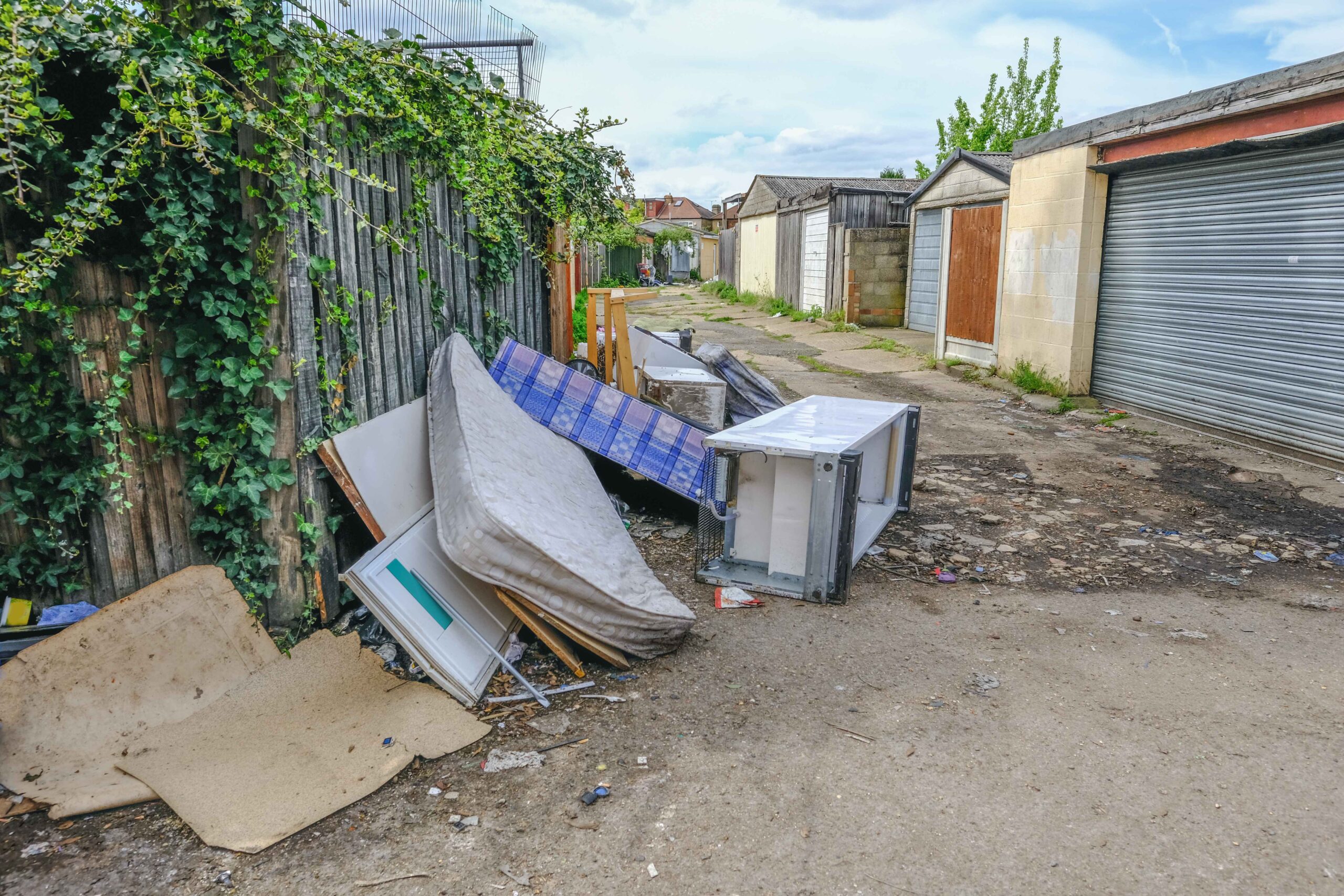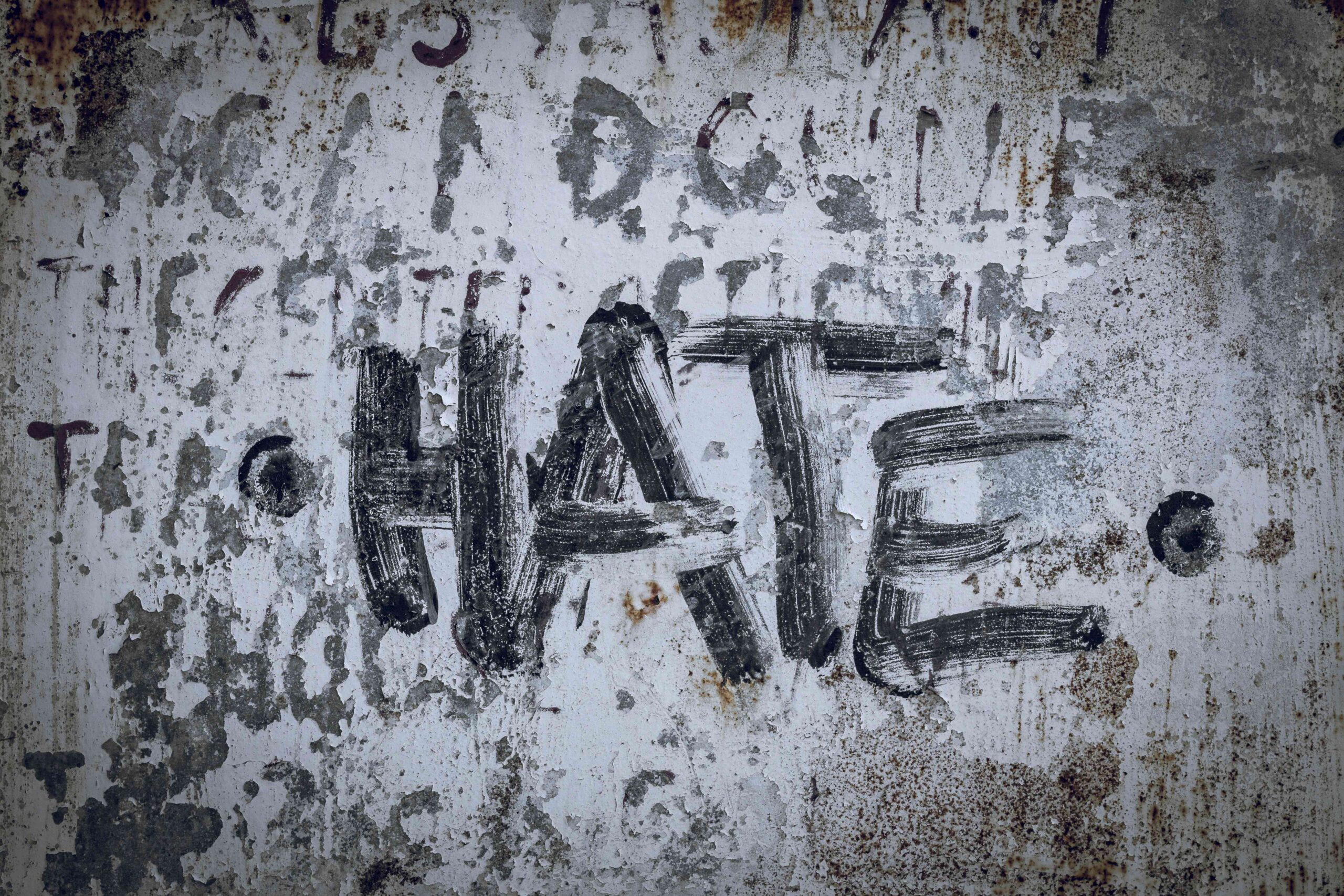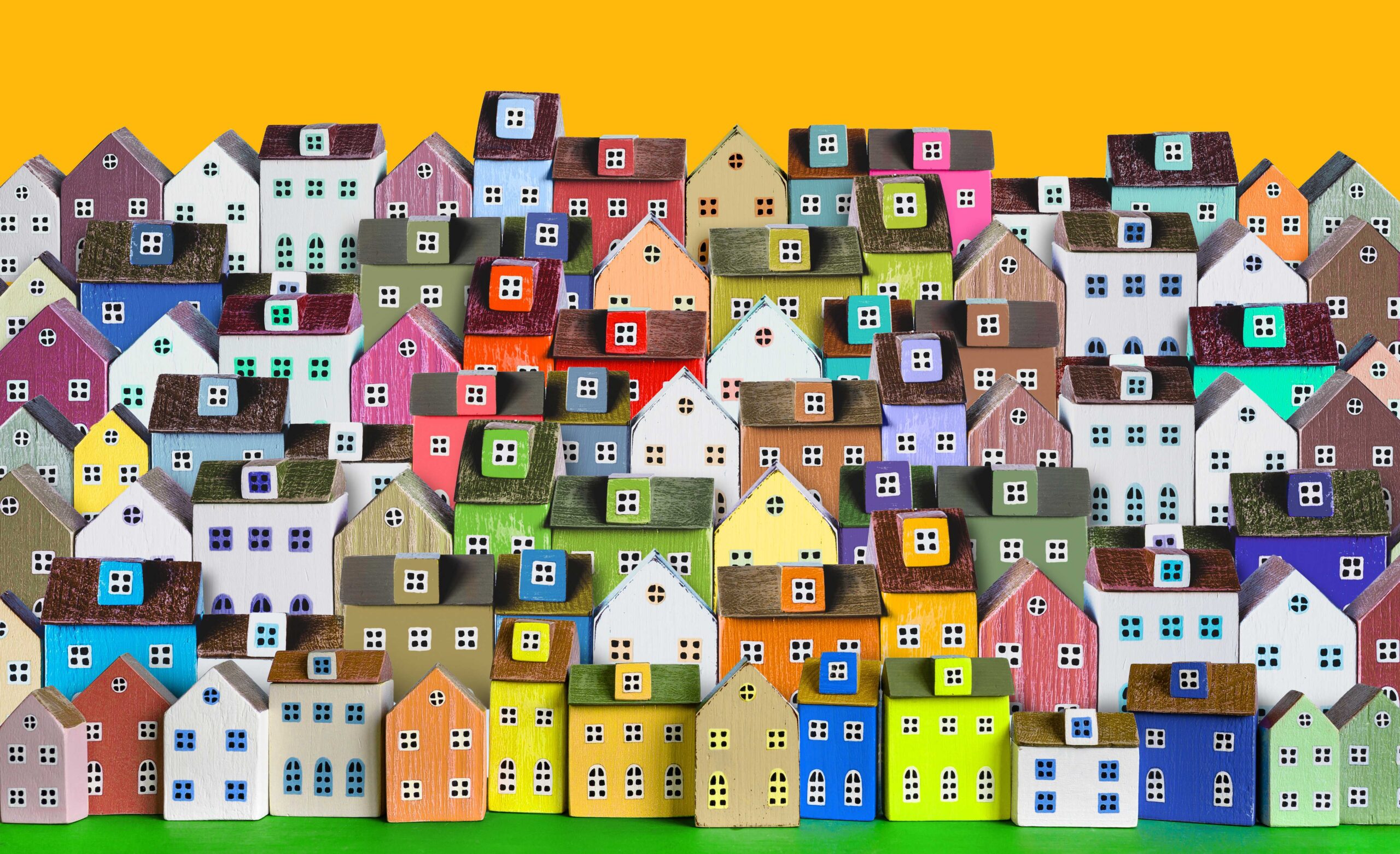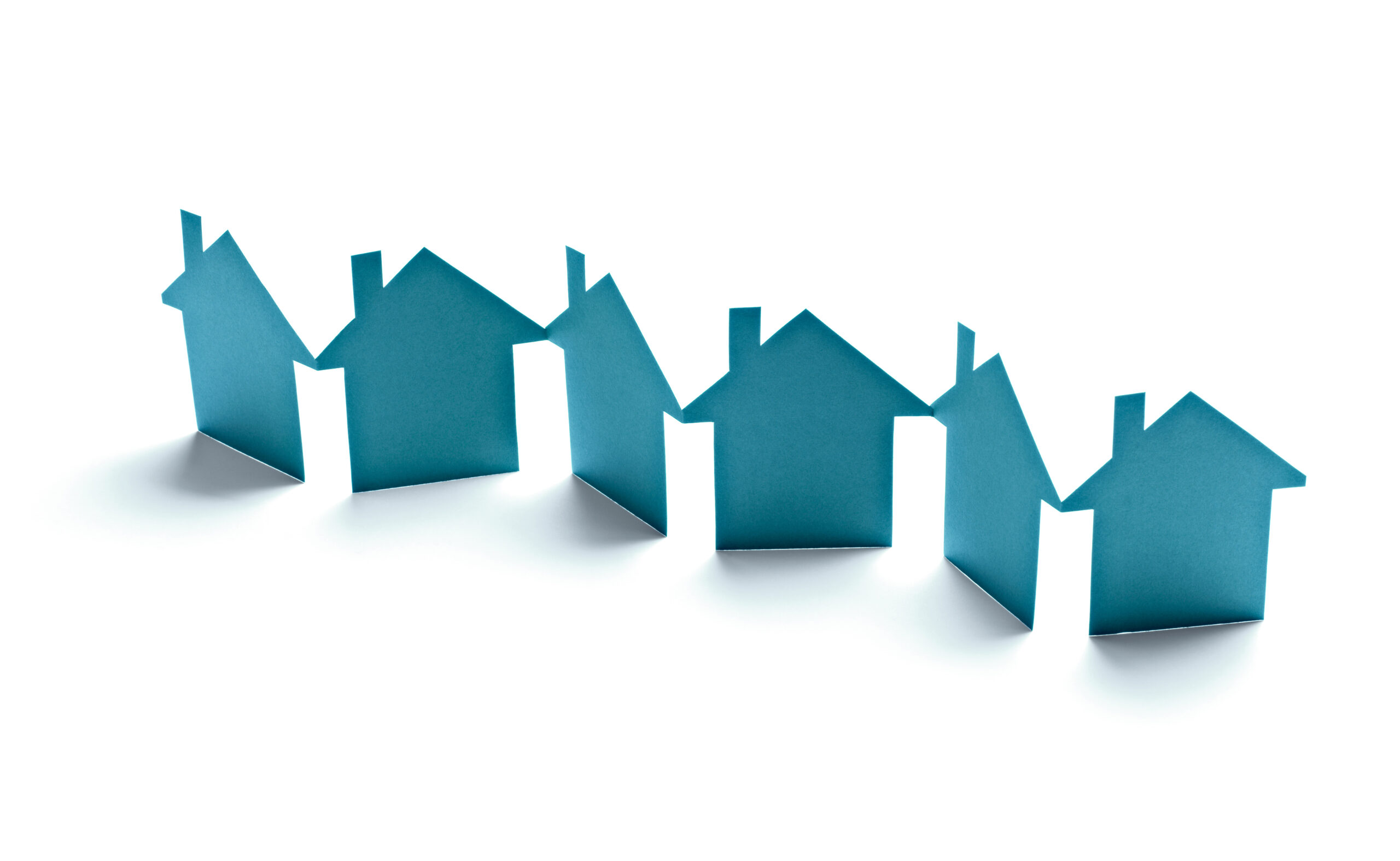Page Contents
Making you feel safe
We want all tenants to live in an environment where they feel safe in their homes and communities and take anti-social behaviour (ASB) very seriously.
We are committed to taking clear steps to deal with anti-social behaviour, nuisance and harassment so that MHA can provide a high quality service.
We work hard to try and stop all forms of ASB so all of our tenants can live and work in communities they feel safe in. All reports of ASB will be taken seriously and every attempt will be made to resolve the issue impartially and sensitively via telephone, letter, email or visit from a member of the Neighbourhood/Community Safety team.
What is Anti-Social Behaviour?
There are many forms of ASB and we use the following definition:
“Anti-Social Behaviour is any type of aggressive, intimidating or destructive activity that damages or destroys another person’s quality of life”.
Types of behaviour that can be classed as ASB include:
- Graffiti on walls
- Noise nuisance such as playing loud music at night
- Vandalism or damage to property in the area you live
- Verbal abuse
- Hate-related incidents
- Nuisance from pets and animals
- Vehicle nuisance
- Drug and substance misuse or drug dealing
- Alcohol-related nuisance
- Physical violence
- Criminal behaviour
- Prostitution / sexual acts
- Harassment, intimidation or threatening behaviour
- Litter / rubbish
- Garden nuisance
- Misuse of communal areas
Anti-Social Behaviour actions in 2023/24
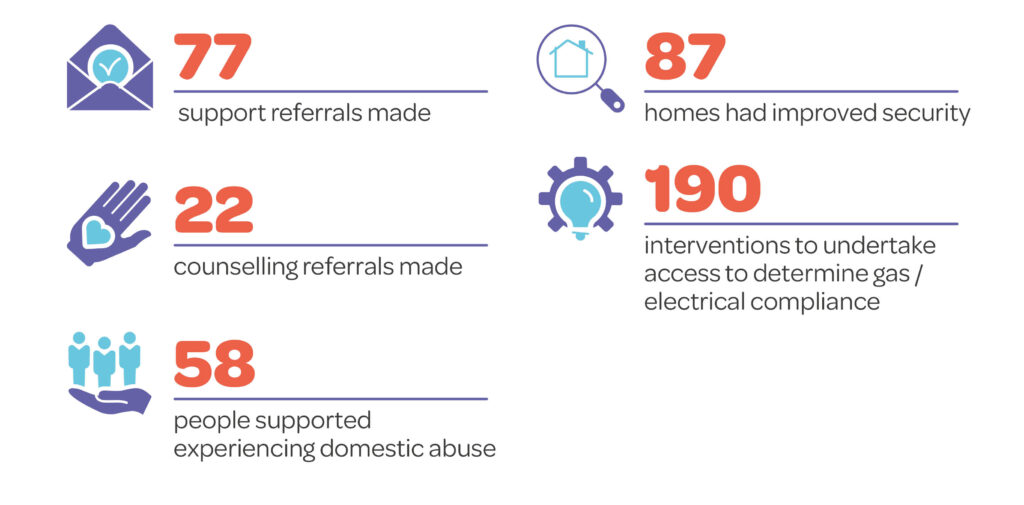
How to report ASB
The earlier a dispute is resolved, the better for everyone. Sometimes your neighbours can be unaware of how their actions affect other people around them.
Approaching your neighbour in a polite and friendly manner explaining how their actions affect you can resolve many disputes without need for further action. This may not be appropriate if your complaint is regarding harassment, intimidation, violence or any other situation where you may feel vulnerable.
In these situations, you should contact the police straight away, but always inform MHA as well.
If you feel you are being subjected to some form of ASB, you can report it to us confidentially in one of the following ways by:
- Using our free MyMHA app (which allows you to easily upload photo evidence)
- Completing our Reporting ASB Form
- Calling us on 0345 677 2277
- Speaking directly to a member of MHA staff
- Calling the Police via the non-emergency number 101
ASB resources
FAQs
We will advise, support and assist anyone who is associated with one of our homes and who is in fear of, or suffering from domestic abuse.
We work with partner agencies to offer help and support for anyone, regardless of gender, suffering from domestic abuse. All complainants and witnesses will be offered support throughout the investigation and will be dealt with in a confidential and sensitive manner.
Everyday activities are not classed as anti-social behaviour or prohibited conduct. Examples include:
- Flushing toilets
- Cooking smells
- People smoking in their own home
- People talking at normal volume in their own home
- Washing machines or other household appliances running at reasonable times
- Babies crying or playing
- Children playing or arguing
- Riding skateboards or bikes
- Playing football in the street
- People being inconsiderate or thoughtless
- People looking or staring
- Cats straying into other gardens
Your responsibilities are set out in your Contract written statement of terms. It sets out what is Anti-social behaviour and Prohibited Conduct. It also sets out the steps that MHA can take if you breach the contract. This may include legal action, depending on the nature of the conduct.
Our Neighbourhood Team and Community Safety Team work towards preventing ASB and domestic abuse by informing tenants and residents of what they can do to avoid causing ASB and what to do if they encounter ASB or domestic abuse.
We also support victims of domestic abuse and ASB and work with perpetrators to help them change their behaviour.
When you tell us about anti-social behaviour we will ask you what happened and will help you as quickly as we can.
We will:
- Talk to you about the problem and who was there
- Talk about what we can do next
- Talk about what you can do next If the person responsible for anti-social behaviour lives in one of our homes
- Do what we can to find out what happened
- Talk to you and anybody else who saw what happened
- If the problem carries on, we will ask you to keep a diary about when the anti-social behaviour happens
If we check your complaint and find there was anti-social behaviour, we can:
- Talk to you and the other person
- Work with them to change their behaviour
- Go to court to get an order to make them stop
- If the person doing anti-social behaviour does not live in one of our homes, we will take direct action ourselves if we can
We categorise anti-social behaviour as either ‘Urgent’ or ‘Nuisance’.
In line with our service standards, if you make a complaint that we categorise as ‘Urgent’ anti-social behaviour such as: physical assaults, serious criminal behaviour, and domestic violence or hate crimes. We will contact you within one working day.
If you make a complaint that we categorise as ‘Nuisance’ anti-social behaviour such as: non-physical abuse, noise nuisance, youth nuisance, selling or using drugs illegally, loud music, offensive drunkenness, dog barking and fouling, bonfires, burning of rubbish, fly tipping or littering we will contact you within five working days.
MHA takes the confidentiality of anyone reporting anti-social behaviour very seriously. This means that any information, written or verbal, will be held in confidence and treated with the utmost care.
We will investigate anonymous complaints where possible. However, we will not be able to provide feedback to the complainant nor will we be able to gain further information and this is likely to limit what action we can take.
Whilst we will do everything possible to protect your identity you need to consider that if you are making a complaint about a neighbour regarding an incident that only you could have witnessed, then they may know that it is you who has made the complaint.
You should also be aware that if you go to court and you have provided a witness statement, a copy of this will be provided to the alleged perpetrator.
To resolve anti-social behaviour we will not move either the complainant or the perpetrator unless there are exceptional circumstances.
We will work with all parties to resolve the nuisance behaviour. Tenants can still apply for a move in the usual way by registering with the Monmouthshire Homesearch team.
Our aim is to act to put a stop to anti-social behaviour. All MHA contracts have terms on Anti-social behaviour and Prohibited conduct.
If the contract-holder breaches these terms, MHA can apply to the court for possession of the property, followed by eviction proceedings. A judge will make the decision whether to award a Possession Order based on the evidence given at court.
Taking someone’s home from them by eviction is the strongest possible action that we could take and is used only as a very last resort. We will only do this once all others means of stopping ASB have been unsuccessful.
If we have contacted you to discuss anti-social behaviour following a complaint that has been made about you, please do not ignore it.
Contact us as soon as possible to discuss the matter; it is important that we understand both sides of the story.
If you are causing anti-social behaviour and you do not engage with us to deal with this, MHA may have to consider taking enforcement action against you.
Examples of our ASB work and neighbourhood teams
Community Trigger - ASB Case Review
If you have been a victim of persistent issues of anti-social behaviour and you feel our actions haven’t resolved the issues, then you may be able to activate the Community Trigger and request a review by the Community Safety Coordinator at Monmouthshire County Council. Please follow the link for further information:

